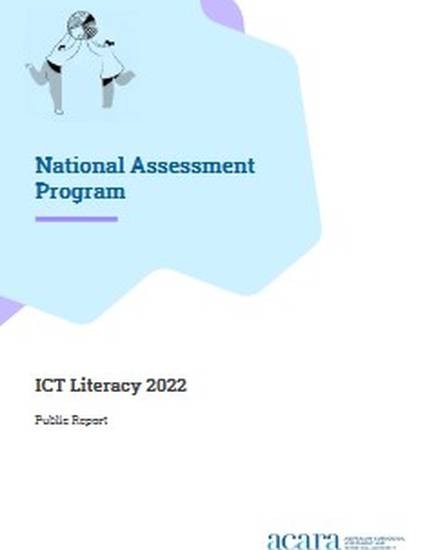
This public report documents the findings of the sixth National Assessment Program ICT Literacy (NAP–ICT Literacy) assessment cycle. In reporting national key performance measures (KPMs) of Australian students’ ICT literacy, the NAP–ICT Literacy assessment provides a way to monitor progress towards the Alice Springs (Mparntwe) Education Goals for Young Australians. Goal 2 of the Alice Springs (Mparntwe) Education Declaration is that “all young Australians become confident and creative individuals, successful lifelong learners, and active and informed members of the community” (Education Council 2019, p. 6). The elaboration of this goal highlights the importance of young Australians’ digital and ICT literacy in a rapidly evolving technological landscape and establishes the context and rationale for reporting on student achievement and progress in this area. For NAP–ICT Literacy 2022, ICT literacy is defined as “the ability to use ICT appropriately and safely to access, manage and evaluate information; develop new understandings; apply computational, design and systems thinking to create solutions; communicate and collaborate with others; and engage productively with emerging and future technologies” (ACARA 2020, p. 13). The NAP–ICT Literacy assessment instrument requires students to apply their ICT knowledge within real-world contexts that represent the 4 strands and integrated aspects outlined in the NAP–ICT Literacy Assessment Framework. These are: understanding ICT and digital systems, investigating and planning solutions with ICT, implementing and evaluating digital solutions, and applying safe and ethical protocols and practices when using ICT.
Copyright Australian Curriculum, Assessment and Reporting Authority (ACARA) 2023
Available at: http://works.bepress.com/kristy-osborne/18/

This publication is also known as the NAP–ICT Literacy 2022 Public Report.